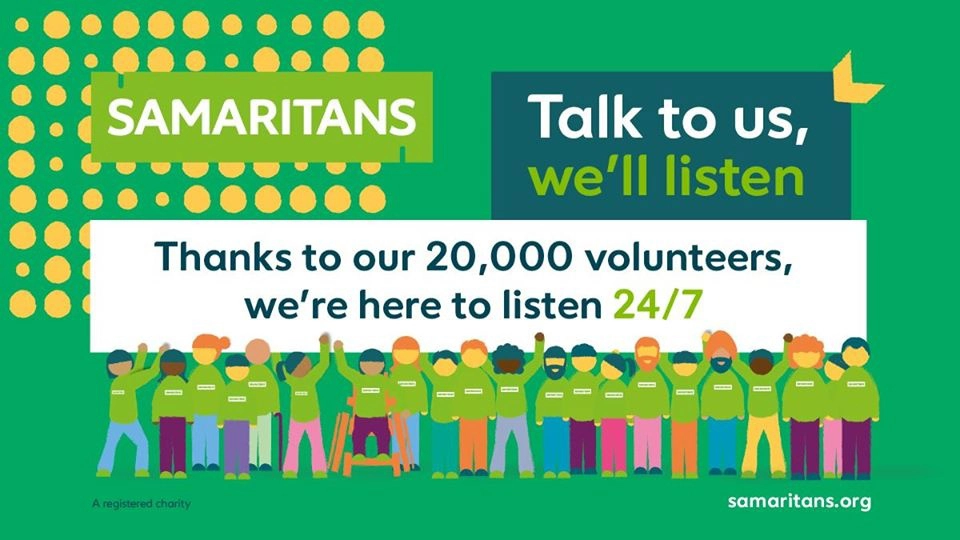Through the course of my work, I've come across a few interesting projects (to me at least) that may add to this discussion. Some of them are quite heavy and research based so I'll try and make them as abridged as possible.
http://www.replacetheface.net/ is an Australian project whereby you participate in an interactive music video. You watch it alongside someone else from around the world, and are then encouraged to discuss the issues raised afterwards. It's aim is to encourage people to speak up.
Which is good, as a recent study found that talking about these things can reduce symptoms by around 30%.
The second project is still in research phase, but there's a paper on it here. It's basically a video analysis system. So people upload selfie videos, and the technology can look at things like heart rate, blinking rate and head movement rate, which they suggest can provide an indication of the persons mental state. It also monitors what we do online, social media posts and the like.
The third is an MIT led project called Panopoly (paper here). It looks specifically at cognitive reappraisal, and on one hand teaches people about this approach, and then gets people assessing their peers. So a user records an event they've experienced, together with their response to it. They then get feedback from others (and can give it themselves too) on how effective that response was, whether alternatives could be tried etc. The developer that built the tool is now trying to get it to market via a company called Koko in NY.
The fourth project has some similarities to the second, in that it uses some whizzy analytics. It's an app called LifeRhythm that aims to tap into the various sensors built into our phones to try and detect depression. For instance, GPS data might be used to determine how far people are venturing outside their homes. Speech may be analyzed via voice sensors, whilst accelerometers could be used to measure activity levels. Even phone records and SMS data could be used to understand communication patterns. It's currently undergoing testing to firm up the approach, but it does seem as though this kind of quantified self style analysis/diagnosis will become more mainstream in the coming years.
I've done a summary of the papers in a bit more detail in the two posts below if anyone wants to read more on them.
http://adigaskell.org/2015/02/09/ne...mpt-greater-discussion-around-mental-illness/
http://adigaskell.org/2015/04/01/how-the-crowd-and-mobile-can-help-fight-depression/
http://www.replacetheface.net/ is an Australian project whereby you participate in an interactive music video. You watch it alongside someone else from around the world, and are then encouraged to discuss the issues raised afterwards. It's aim is to encourage people to speak up.
Which is good, as a recent study found that talking about these things can reduce symptoms by around 30%.
The second project is still in research phase, but there's a paper on it here. It's basically a video analysis system. So people upload selfie videos, and the technology can look at things like heart rate, blinking rate and head movement rate, which they suggest can provide an indication of the persons mental state. It also monitors what we do online, social media posts and the like.
The third is an MIT led project called Panopoly (paper here). It looks specifically at cognitive reappraisal, and on one hand teaches people about this approach, and then gets people assessing their peers. So a user records an event they've experienced, together with their response to it. They then get feedback from others (and can give it themselves too) on how effective that response was, whether alternatives could be tried etc. The developer that built the tool is now trying to get it to market via a company called Koko in NY.
The fourth project has some similarities to the second, in that it uses some whizzy analytics. It's an app called LifeRhythm that aims to tap into the various sensors built into our phones to try and detect depression. For instance, GPS data might be used to determine how far people are venturing outside their homes. Speech may be analyzed via voice sensors, whilst accelerometers could be used to measure activity levels. Even phone records and SMS data could be used to understand communication patterns. It's currently undergoing testing to firm up the approach, but it does seem as though this kind of quantified self style analysis/diagnosis will become more mainstream in the coming years.
I've done a summary of the papers in a bit more detail in the two posts below if anyone wants to read more on them.
http://adigaskell.org/2015/02/09/ne...mpt-greater-discussion-around-mental-illness/
http://adigaskell.org/2015/04/01/how-the-crowd-and-mobile-can-help-fight-depression/











